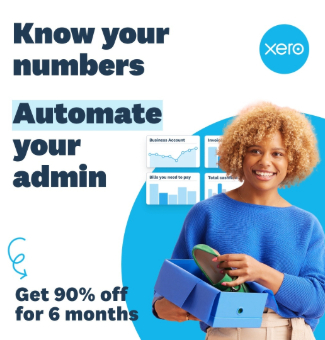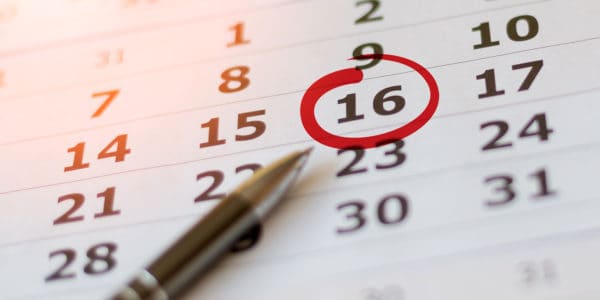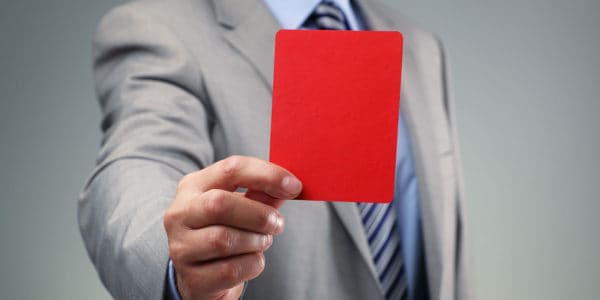Setting up a new business in the UK is incredibly simple. Demand is sky-high for talented workers across a variety of sectors, and there’s a fantastic digital business infrastructure that new business owners can plug into, to quickly grow a new business with minimal investment.
The UK is so business-friendly that professional company formation agents like Quality Company Formations have the ability to legally incorporate a limited company in as little as three working hours – for as little as £51.99.
That being said, it’s worth pointing out that as a new limited company owner in the UK, you will also need to tick a few legal boxes before you can start trading. Many of these are industry-specific and come in the form of obligatory business licences.
Key takeaways
- Register with local authorities to identify specific business licences required for your industry and location.
- Obtain necessary permits early to ensure compliance and avoid legal issues when launching your business.
- Understand the different licensing requirements across the UK to effectively navigate regional regulations.
What is a business licence?
Simply put, a business licence is an official permit that is issued by a government agency or affiliated body that allows an individual or a limited company to conduct particular business activities within that body’s jurisdiction. As you would imagine, the licences you’ll need to operate your business activities will depend largely upon where in the country you’re based and what it is you want your company to do.
To help you understand what types of business licences there are in the UK and which licences you may wish to consider before trading, we’ve compiled this comprehensive guide walking you through the key permits and licences required or recommended across some of the UK’s top up-and-coming industries.
What business licences do I need for my business?
Before setting up business in the UK, you should always contact your local authority to find out if there are any area-specific or industry-specific permits or zoning restrictions that could limit your activities. That being said, there are a few major permits that many businesses operating across all local authorities in the UK will need to be aware of before they open their doors.
To help you get started, we have listed some of the most common licences that UK businesses must or should obtain before they start trading. However, it’s important to remember that your company’s licensing needs will vary wildly based upon the type of business you’re running and what types of activities you plan to carry out.
Licences to play music (including background music):
If your business intends to play recorded music, stage live music events in public, play live music in a theatre or used sound recordings for a theatrical production, you must apply to the PPL PRS for what is called ‘TheMusicLicence’.
The cost of this licence normally varies based on the type of venue where you’re playing music and how that music is used, but the rules apply to all shops, offices, salons, cinemas, restaurants, cafes, pubs, churches and more.
Public space surveillance (CCTV) licence:
This type of licence is required if you want to protect your company premises using CCTV equipment. Before you’re allowed to start using CCTV, you will need to get a licence from the Security Industry Authority (SIA) if you plan to record the activities of members of the public in a public or private place.
There are two types of SIA licences. The first is a front line licence for operatives who are carrying out surveillance. The second is a non-front line licence for company managers, supervisors and other staff who don’t regularly monitor CCTV activities. To obtain a licence, you must be at least 18 years old, pass an identity check and pass a criminal record check.
Discharge of trade effluent permit (England, Wales and Northern Ireland):
Your business will need to obtain this permit if you are discharging effluent that could harm the environment. These permits cover any environmental features such as rivers, lakes or streams, groundwater, estuaries or coastal waters.
Pollution Inventory reporting (England and Wales):
Your business may also have statutory responsibilities to report on its annual emissions of certain substances into the air, water or land.
You are legally obliged to report to the pollution inventory if:
- your company operates under a Part A (1) Environmental Permit, and you have been given a notice under Regulation 60 of the Environmental Permitting Regulations 2010; assuming that you operate a sewage treatment works business with a capacity at 100,000 population equivalents or more
- you dispose of radioactive waste covered by a permit issued under the Environmental Permitting Regulations 2010; if you run an opencast mine or quarry with a surface area over 25 hectares
- or you operate an underground mine and related operation with no capacity.
Your pollution inventory reporting returns need to be submitted by 28 February of each reporting year. This can be done online.
Environmental permits issued by the local authority (England and Wales):
You need to hold an environmental permit from your local council if you take part in any business activities such as metal works, surface treatment, glass manufacturing, ceramic product manufacturing, recycling of animal carcasses or waste, manufacture new tyres or more.
For guidance, check the UK Government’s full list of applicable activities and then consult your local authority for advice.
It’s also important to note that you may also be required to obtain a permit from the Environment Agency in England and Wales. There may be different rules for businesses operating in Northern Ireland and Scotland.
Food business registration isn’t exactly a licence. However, it is mandatory if you own a business carrying out ‘food operations’ in a food business. Food operations count as any activity like selling food, cooking food, storing or handling food, preparing food or distributing food.
You will need to register with your local council, and you’ll need to register every premises where you carry out food operations if your business operates from multiple places.
Similar to food business registration, you must apply to have your business premises approved by the local council if your business handles meat, fish, egg or poultry products. You should note that it is a criminal offence to run an unapproved food premises, and you will most likely be prosecuted if you do so.
There are slightly different rules that apply in England, Northern Ireland, Scotland and Wales.
Premises licence (England and Wales):
A premises licence is the most common type of business licence required by food or entertainment business, and gets its name because you must acquire this licence to carry out ‘licensable activities’. There are several reasons your business could require a premises licence, but the most commonly cited reason for applying is when a business plans to sell alcohol.
That being said, selling alcohol is not the sole reason your business could need a premises licence. You will also require a licence if you intend to serve hot food or drinks between the hours of 11pm and 5am in England and Wales.
Likewise, you’ll require a premises licence if your business plans to exhibit a theatrical performance, show a film or indoor sporting event, live music, play recorded music, dancing, facilities for making music or any type of boxing or wrestling. Even if these activities are being done for charity, you will still require a premises licence for your business.
The exception to this is if your business is displaying educational or promotional films, films shown as part of an exhibition in a museum or gallery or the music being played on your premises is incidental.
The rules for premises licences are slightly different in Scotland and Northern Ireland. Consult the UK Government website or your local authority for more information on rules specific to these jurisdictions.
Temporary Events Notice (England and Wales):
A Temporary Events Notice is needed if your business plans to carry out any sort of ‘licensable activity’ on a temporary basis using an unlicensed premises. This licence is required for any food or entertainment business that is unlicensed but would like to take part in licensable activity on a short-term basis.
If you’re interested in applying for a Temporary Events Notice, you can do so via your local authority. A similar temporary licence is available in Scotland and Northern Ireland and can be acquired from local authorities.
Control of major accident hazards notification:
If your business plans to handle, produce, use or store dangerous substances, you will probably be required to notify the Health and Safety Executive (HSE) and the relevant environment agency responsible for your geographical jurisdiction.
If you’d like your business to run a market stall as a trader, you will need either a temporary or permanent market stall licence from your local council. Your local authority will dictate any restrictions, such as the hours in which you can operate your stall, where it needs to be and how large it is allowed to be.
Temporary licences must be renewed on a fairly regular basis depending upon your local authority – and if you’ve got a temporary licence, you may not receive a fixed spot for your stall. If your business obtains a permanent market stall licence, this is ordinarily when you’ll be appointed a fixed pitch.
Street trading licence (England and Wales):
A street trading licence is similar to a market stall licence but covers businesses that may not have a stall in the traditional sense. You may not need a street trading licence if you have a pedlar’s certificate or a market stall licence, but this will vary based on your local authority. When in doubt, contact your area council for guidance.
Believe it or not, the exact same TV Licence rules that apply to your residential home also apply to your business. A standard TV Licence costs £150.50, and you must have a TV Licence if anyone on your premises watches or records programmes on a TV, computer or other device as they are being broadcasted. This includes downloading or watching BBC programmes on iPlayer – whether it is live, catch up or on demand.
Greenhouse gas emissions permit:
If your business operates combustion installations with a rated thermal input exceeding 20 megawatts, electricity generators, combined heat and power (CHP), the production of pulp from timber, or a wide range of other major environmental activities, you will be expected to obtain a greenhouse gas emissions permit from the relevant regulator in your geographical jurisdiction.
Child work permit (England and Wales):
If you’d like to employ children aged 13 or over at your food or entertainment business, you are free to do so if you apply for a child work permit from your local authority. Please note that in the UK it is illegal to employ any child under the age of 13 unless they are taking part in a paid performance, sport or modelling activity and you’ve obtained a child performance licence from your local authority.
As you would imagine, there are several strict but justifiable conditions surrounding the employment of children aged 13 or over that permit holders must adhere to. Children can only be employed on a casual basis, by their parents in light agricultural or horticultural work, or in categories of light work set out by local authorities.
There are also typically going to be rules surrounding the maximum number of hours a child aged 13 or over is allowed to work in the UK. Contact your local authority for more information.
Similar permit laws apply in Scotland and Northern Ireland. Companies local to these jurisdictions should contact their local authorities for guidance.
Permission to distribute leaflets (England and Wales):
In some local authorities, you are required to obtain permission from your local council to distribute free printed material in England and Wales. For reference, free printed materials include leaflets or cards, free newspapers, takeaway menus or other promotional materials for your business.
That being said, you will not normally need to obtain council permission if your printed materials are being distributed in letterboxes, inside a building or a bus, on behalf of a charity, or if it is on behalf of political or religious beliefs. Yet as always, you should always seek guidance from your local council if you’re confused.
Personal licence to sell alcohol (England and Wales):
We’ve already covered the Premises Licence – but because selling alcohol is such a serious business activity, you must also obtain at least one personal licence to sell alcohol for your food or entertainment business.
It is imperative that you or a member of your staff hold a personal licence if your company plans to sell alcohol from a licensed premises. This ensures that every single sale or supply of alcohol is authorised by a personal licence holder.
Please note that if you have obtained a temporary events notice to carry out licenced activities on unlicensed premises, you are not normally required to apply for a personal licence to sell alcohol. Please note that to obtain a personal licence to sell alcohol you must be 18 years or older and hold some sort of licensing qualification such as the Award for Personal Licence Holders (APLH) Level 2.
If you would like to sell your products door-to-door, you must apply for a pedlar’s certificate. This certificate allows you to sell your products throughout the UK, and you must trade on foot and carry your goods with you. It is important to note that you do not need a certificate if you visit customers but do not sell products to them.
To apply for a pedlar’s certificate, you must be over 17 years of age and must have lived in the local authority in which you’re applying for at least 28 days. A certificate costs £12.25 and lasts for 12 months.
Notification to process personal data:
If your retail company intends to process any type of personal data in an automated form, you must notify the Information Commissioner’s Office (ICO). For all intents and purposes, ‘personal data’ counts as any information relating to a living person that can be used to identify that person. This includes employment details, client information and data captured via CCTV.
If your business does process personal data of this nature, your company is considered a ‘data controller’ for the purposes of the Data Protection Act 2018 and the European Union’s new General Data Protection Regulation (GDPR).
It is important to note that you may not need to notify the ICO of your intention to process personal data, if your activities are limited to staff administration (such as payroll), advertising or marketing for their own business, accounts and records or judicial functions. Other exemptions include processing data for personal affairs, some non-profit activities, and for data controllers who are only processing personal data to maintain a public register.
That being said, it is also important that your business always checks with the ICO to find out if you are actually exempt from notification.
Apply for Financial Conduct Authority (FCA) authorisation:
If your business plans to undertake any sort of regulated financial activities, including offering customer credit, your company will need to apply for Financial Conduct Authority (FCA) authorisation.
Controlled goods export licence:
It is a criminal offence in the UK to export or import controlled goods without the right licence, so if your business relies on (or is part of) an international supply chain, you need to be aware of export licence rules.
There are quite a few different licences to choose from, and the export licence that will best fit your business will depend based on the sort of activities you’re carrying out. The UK Government provides detailed guidance on the various available export and import licences on its website.
Goods vehicle operator licence (England, Scotland and Wales):
If your business plans to use goods vehicles above a certain weight, you will need to apply to the Driver and Vehicle Standards Agency (DVSA) for a goods vehicle operator’s licence. This is required for all lorries, vans or other vehicles with a gross plated weight of over 3,500 kg. The rules also apply to vehicles with an unladen weight of more than 1,525 kg.
There are 3 different licence types, and the one your business must apply for will depend on the work your company is doing. It’s also important to note that there are different rules for goods vehicles in Northern Ireland.
Money laundering registration:
HMRC oversees strict rules on money laundering, and these regulations apply to a number of businesses including accountants, financial services, estate agents, solicitors and more.
Money laundering is the concealment of the origins of illegally obtained money, typically by means of transfers involving legitimate businesses. If you run an applicable business, you are legally obligated to register. If you fail to register, you may need to pay a penalty or be prosecuted.
Street works licence (England, Scotland and Wales):
Your business will need permission from your local council to put any type of equipment connected with digging onto a public road. However, your company is allowed to do emergency work without a licence as long as you inform your local council within two hours of starting work.
Permission to place tables and chairs on the pavement:
If you want to place tables, chairs or other temporary furniture on the pavement in England and Wales, you’ll need to apply to your local authority for permission. This is typically granted without much fuss, although you may find that your local council places restrictions on your permit around how big your furniture can be and where on the pavement it can be placed.
Pavement or street display licence (England and Wales):
You’ll also need to obtain a licence from your local council if you want to put an advertising sign or display on the road or pavement in England or Wales. It is also important that you obtain a licence and obey any restrictions or conditions surrounding it. Your licence can be withdrawn and you can be fined up to £2,500 if you don’t obey the conditions of your licence.
If you place an advertising sign or display on a pavement or road without first obtaining a licence, you can be fined £2,500 for the infraction, plus £250 per day for every day the advertisement remains on the pavement or street.
The bottom line
Although we’ve walked you through a taste of the UK’s most common types of business licences, it is important to bear in mind that this list is by no means exhaustive. There are plenty of other business licences you may want to consider, depending upon the type of company you’re running and where you’re based. What’s more, there may be different rules for those operating in Scotland, Northern Ireland, England or Wales – and regulations often vary from local authority to local authority.
When in doubt, you should consult the UK Government website and you should check with your local authority before you start trading, to ensure that your company has obtained all of the applicable business licences you’ll need to meet your legal obligations. That way, you’ll be able to spend less time worrying about compliance, and more time thinking about moving forward and achieving success.
Are you also looking for more ideas on how to ensure your company meets all of its statutory obligations? Check out the Quality Company Formations blog. There, you’ll find plenty of resources and how-to guides on company tax, accounting, filing requirements and more.
Please note that the information provided in this article is for general informational purposes only and does not constitute legal, tax, or professional advice. While our aim is that the content is accurate and up to date, it should not be relied upon as a substitute for tailored advice from qualified professionals. We strongly recommend that you seek independent legal and tax advice specific to your circumstances before acting on any information contained in this article. We accept no responsibility or liability for any loss or damage that may result from your reliance on the information provided in this article. Use of the information contained in this article is entirely at your own risk.














Join The Discussion
Comments (9)
Hello,
I plan to start an online grocery business offering eggs, milk, meat, alcohol, and other groceries, sourcing products directly from local stores and supermarkets. We won’t be holding any inventory; instead, we’ll purchase items from local shops based on customer orders and then deliver them. What licenses do I need to operate this type of business?
Thank you for your comment, Anuj. Unfortunately, we are unable to provide advice on specific scenarios. We would recommend contacting a solicitor and your local council for further assistance.
Please accept our apologies for any inconvenience caused.
Kind regards,
The QCF Team
Really lots of fantastic material!
Thank you for your kind words, Ruby.
Kind regards,
The QCF Team
Hi I enjoyed the read.
What is the requirements a trade of Shisha.
Do I need planning permission to have this type of business.
Can an open layout different area be licences on Shisha and restaurant
To play music, TV viewing, live entertainment , serving alcohol hit food until 3am.
Thank you for your kind enquiry, Erinie.
With regards to Shisha, you need to ensure your bar is compliant wi h the Health Act 2006.
If you construct a shelter for shisha users, it may require planning permission. You should contact your local council’s planning department prior to construction.
You should ensure you have a valid fire safety certificate.
It is likely you will require at least 50% of the walls of the stucture to be permanently open. Smoking of a shisha or water pipe withi substantially or fully enclosed public spaces is not permitted under Smoke Free laws in the UK.
With regards to playing live music, and live entertainment and alcohol and food, you can find out more information here: https://www.gov.uk/licence-finder
We trust this information is of use to you.
Kind regards,
The QCF Team
Thank you for your kind enquiry, Erinie.
With regards to Shisha, you need to ensure your bar is compliant with the Health Act 2006.
If you construct a shelter for shisha users, it may require planning permission. You should contact your local council’s planning department prior to construction.
You should ensure you have a valid fire safety certificate.
It is likely you will require at least 50% of the walls of the stucture to be permanently open. Smoking of a shisha or water pipe withi substantially or fully enclosed public spaces is not permitted under Smoke Free laws in the UK.
With regards to playing live music, and live entertainment and alcohol and food, you can find out more information here: https://www.gov.uk/licence-finder
We trust this information is of use to you.
Kind regards,
The QCF Team
Hi – I am enquiring on behalf of a potential client. We sell clothing on-line, but want to have a handful of headline “stores/Shops/cafes” to have some demonstration garments for size and feel, where customer can then scan a Q-Code or note a link to our on-line portal, with a store specific code that is logged to register sales from that outlet for commission or credit purposes. Our client is wondering if any specific license should be considered. they are already a Cafe that sells some sit-it and takewaway goods etc, so those elements are already taken care of, i.e. all the licenses they need already are taken care of.
Thank you for your kind enquiry, James.
Given the scenario you describe, the only type of licence you may need to obtain is a licence to play background music in your store. You can find out more information about this specific licence here: https://www.gov.uk/licence-to-play-live-or-recorded-music
We trust this information is of use to you.
Kind regards,
The QCF Team